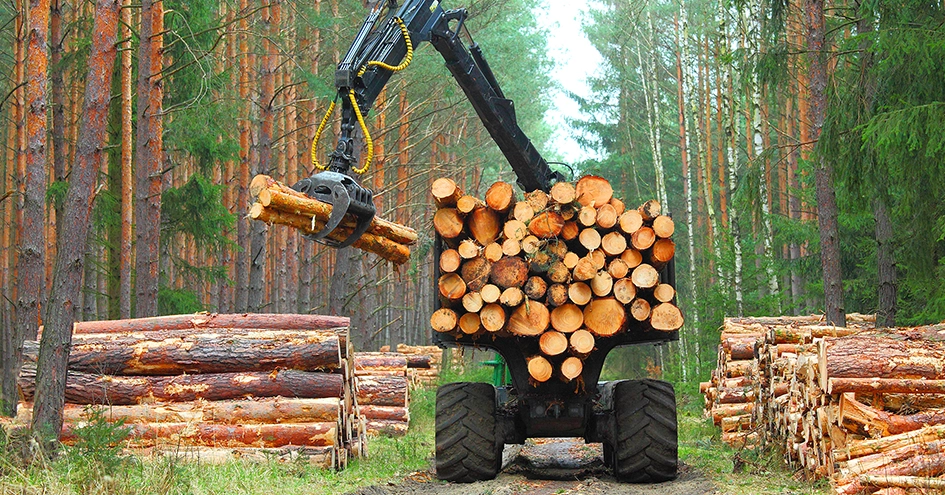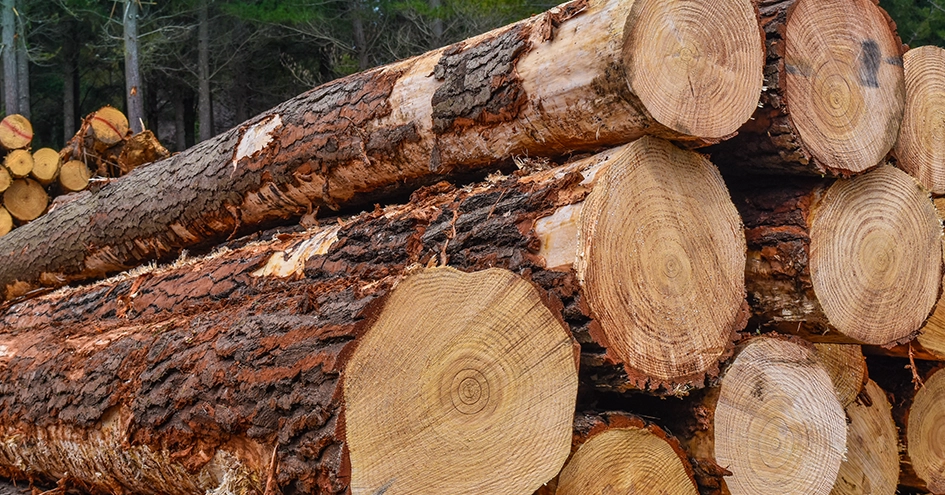Paper and timber
The way we use virgin paper and timber fibres in our Private Brand and perishable products and packaging is in line with Element 1 of the FPCoA’s roadmap for paper, pulp and packaging, and its definition of a positive forest. As such, we are committed to not contributing to deforestation, conversion, forest degradation and human rights violations.
To reduce the risk of deforestation associated with our Private Brand and perishable products and packaging, we have implemented a strategy based on three pillars:
- progressive incorporation of recycled fibres;
- monitoring the origin of virgin fibres at least up to the national level;
- use of virgin fibres with FSC® or PEFC sustainability certification.

Our commitment is to ensure that, by the end of 2025, the paper and timber used in our Private Brand and perishable products and packaging are not associated with deforestation or the conversion of HCV ecosystems, setting 31 December 2020 as the cut-off date for the cessation of conversion.
In this context, our two main objectives are:
- by 2026, ensure that 95% of the virgin fibres used in our products and 80% of the virgin fibres used in our packaging have a sustainability certification such as FSC® or PEFC;
- ensure that, by 2030, 100% of the virgin fibres used in our products and packaging have a sustainability certification such as FSC® or PEFC.
Progress in 2024
The use of paper and timber fibres in Private Brand products and packaging in Colombia, Poland and Portugal is assessed annually. Our progress is measured in accordance with the guidelines set out in the CGF’s Pulp, Paper & Packaging Guidelines.
In 2024, 100% of the virgin and recycled paper and timber fibres used by the Group totalled 370,289 tonnes. This amount covers 100% of Private Brand and perishable products and packaging.
Around 43% of our fibre consumption comes from recycled materials. As for the virgin fibres used in our Private Brand products and packaging, which account for around 57% of the total, approximately 90% had FSC®, PEFC or SFI sustainability certification. This figure is in line with our goal of ensuring 100% certification by 2030. In the case of paper and timber packaging, around 80% of the fibres used were recycled.
We have managed to trace the origin of around 90% of the virgin fibres used in our Private Brand and perishable products and packaging at least down to the country level. This analysis revealed that around 16% of the total virgin paper and timber fibres used originate from countries with a non-negligible or unknown risk of deforestation – an improvement of 10 p.p. compared to 2023. To mitigate this risk, we incorporated raw materials with FSC®, PEFC or SFI certification. These certifications covered 85% of all virgin fibres from countries with a non-negligible or unknown risk of deforestation.
Paper and timber products
In 2024, consumption of virgin paper and timber fibres in Private Brand products increased by 6% compared to 2023. This increase was mainly due to product launches and sales growth, particularly at Biedronka. In addition, the high demand for recycled paper and timber fibres created restrictions on access to these commodities, which contributed to an increase in the use of virgin fibres in our Private Brand and perishable products.
We were able to trace 100% of virgin fibres back to the country of origin and verified that 6% of these fibres came from countries with a non-negligible risk of deforestation (according to the CGF guidelines, these countries are Argentina, Indonesia, Malaysia, the USA and Vietnam). Of these, 79% were FSC®, PEFC or SFI certified, which indicates that they come from responsibly managed forests.
Paper and timber packaging
Around 80% of the paper and timber fibres used in our packaging are recycled. Virgin fibres account for the remaining 20%, of which approximately 58% come from countries with a non-negligible or unknown risk of deforestation. Of this group, 88% are FSC®, PEFC or SFI certified.
As a food retail group, we don’t buy packaging directly, which makes it difficult to identify the origin of the virgin paper and timber fibres used in packaging. However, we will continue to work with our suppliers to increase the traceability of these commodities.

DCF calculation
Based on this information, and as was the case in 2023, we calculated the DCF consumption of timber and paper in Private Brand products and packaging.
Thus, assuming that:
- the countries identified by the FPCoA as being free from deforestation and conversion are considered to be at negligible risk;
- in countries identified as having a high risk of controversial sources, sustainability certification schemes (FSC® or PEFC) are considered DCF;
we can assume that 96% (203,731 tonnes) of the total virgin paper and wood fibres used in Private Brand and perishable products and packaging are free from deforestation and conversion of HCV ecosystems. Of these, 85% (174,174 tonnes) come from countries with a negligible risk of deforestation and conversion, and 15% (29,557 tonnes) are physically certified as DCF. The volume considered to be in progress for DCF corresponds to 4% (8,420 tonnes).
If we analyse only Private Brand packaging and perishables, 87% (1 p.p. more than in 2023), or 36,029 tonnes, meet the DCF criteria described above (39%, or 13,944 tonnes, come from countries with a negligible risk of deforestation and conversion and 61%, corresponding to 22,085 tonnes, have a physical certification considered DCF). In the case of wood and paper products, as in 2023, 98% of consumption (167,702 tonnes) meets the DCF criteria (96%, or 160,230 tonnes, comes from countries with a negligible risk of deforestation and conversion and 4%, or 7,472 tonnes, has a physical certification scheme considered DCF).
Engagement with traders
The relationship we have established with Private Brand and perishables suppliers is ongoing and focused on fulfilling our commitments to fight deforestation. Since 2014, together with these suppliers, we have been tracking the use of virgin fibres in our Private Brand and perishables products and packaging (including primary, secondary and tertiary packaging), to identify the country of origin of the virgin fibres. If the country presents a risk of deforestation, the goal is to determine the region of origin. We also evaluate the sustainability certification associated with these fibres, prioritising the FSC® and PEFC certification schemes.
All our suppliers are committed to the actions publicly defined in the FPCoA’s Pulp, Paper and Packaging roadmap, and are also encouraged to include the same commitments in their own practices. To promote a more responsible supply chain aligned with our sustainability objectives, we conduct an annual survey to monitor each supplier’s progress.
We prioritise suppliers that together represent 80% of our total paper and timber consumption, reinforcing the communication about our performance, commitments and policies for a positive future for forests. To increase visibility across the supply chain, we map the origin of our paper and timber, identify the certification schemes used and collect information on other suppliers upstream of our direct suppliers.
We are committed to extending the traceability of our supply chain to the subnational origins (such as region, state or municipality) of this commodity by the end of 2025. We will involve our most relevant suppliers in order to identify their traders, verify their commitments to fight deforestation and conversion, and promote their alignment with the objectives we have set for our paper and timber supply chain.
